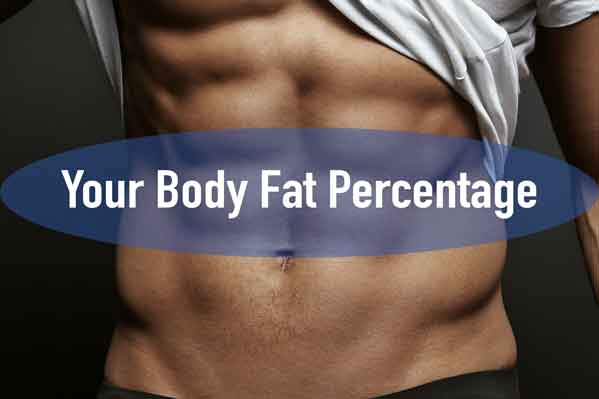The Complete Guide to Flexible Dieting
There are many methods which offer quick weight loss and promise to help you keep the weight off. Most of them tell you that the only way to do so is by getting rid of all the “bad” foods in your diet and only consume those which are considered “good”.
While this can still be a great way for you to get in shape and stay healthy physically, it might not be the best choice for you mentally. Many people, who go through very hard to follow diets, end up restricting themselves so much that at some point they simply can't keep up with them.
But what if there was a diet that would still allow you to enjoy your favorite meals without you feeling guilty or being afraid that you ruined your hard work? This article will explore the Flexible Dieting trend and help you understand if it is the right choice for you.
Topics covered in this guide
What is Flexible Dieting?
Is IIFYM and Flexible Dieting the same thing?
What foods can I eat while following a Flexible Dieting plan?
Benefits of Flexible Dieting
Is this the right choice for me?
For how long can I follow this diet plan?
Is this a good option for people with allergies?
Are there any side effects to Flexible Dieting?
What is Flexible Dieting?
Flexible dieting is nothing more than a dieting method typically aiming at weight loss that has become extremely popular during the past few years. It is very easy to follow and many people choose to follow it because of its ease and adaptability.
This special thing about this diet method is that it permits all food groups as long as they adhere to the person's daily or weekly individual macronutrient targets.
Since everyone's goals, training plans, genetics and lifestyle are different, a flexible diet is needed in order to achieve the wanted results and it can truly help people stay on track of their diets.
How does it work?
Flexible Dieting presents some very simple and easy to follow steps in order for you to not only eat a complete and balanced diet, but to also enjoy your meals while still working towards achieving your body goals.
First of all, you need to understand that everything you consume contains calories. These calories come from fats, proteins and carbohydrates. No matter what you choose to consume will give you calories that are needed for your everyday bodily functions and activities. Of course, too much of a good thing though will lead to weight gain.
Here are a few more things you need to know about calories and macronutrients as far as flexible dieting is concerned.
Resting and Total energy expenditure
Your body naturally burns a particular amount of calories not only while you rest, but also while you go about your day. The calories you burn at rest make up for you Resting Energy Expenditure (REE) otherwise known as Basal Metabolic Rate (BMR), while the calories you spend during your daily activities make up for your Total Daily Energy Expenditure (TDEE).
In order for you to calculate your Daily Calorie Needs and therefore your needs in macronutrients, you should take into consideration quite a few factors like your activity level, gender, age etc. If you need some help, we offer a free calorie calculator which will help you figure your calorie needs based on your personal goals, without troubling yourself too much with doing equations by hand.
Calculating Your Macronutrients
After determining your personal calorie goals, the next step is to calculate your macronutrient needs. Macronutrients provide calories for your body and help you stay healthy, smart and active. Each gram of each macronutrient gives a particular amount of calories and should be consumed at a particular amount.
- Carbohydrates offer 4 calories per gram and should make up for 45-65% of your total daily calories
- Proteins offer 4 calories per gram and should make up for 10-35% of your total daily calories
- Fats offer 9 calories per gram and should make up for 20-35% of your total daily calories
Summary: Flexible dieting is a dieting method that aims to help people achieve weight loss without the traditional restrictions of a normal diet. The person following it should make sure that whatever they consume stays within their daily macronutrient and calorie needs.
Is IIFYM and Flexible Dieting the same thing?
Many people refer to Flexible Dieting as IIFYM. While that is not incorrect, in reality, the second one is nothing but a slight variation of the first.
IIFYM, or “If It Fits Your Macros”, is a type of Flexible Dieting where the person following it still has to adapt their food choices to their daily needed Macronutrient measurements. For this one though, you will have to be a little bit stricter about certain macro percentages.
A very important thing in the IIFYM method for many followers is making sure that their fiber intake is sufficient. This way, they aim for a wide range of foods such as fruits, veg and whole wheat products which will help them achieve their daily fiber goals.
Summary: Flexible dieting and IIFYM are both very similar, with the only exception that followers of IIFYM tend to be a little but more strict about what they consume. Most people usually use both terms to describe the same dieting method.
What foods can I eat while following a Flexible Dieting plan?
A Flexible Dieting plan pretty much allows you to eat your favorite foods while still staying on a diet and losing weight. This means that you can still enjoy your favorite meals as long as they feed you macronutrient needs.
For example, you can easily still enjoy mac and cheese or even a desert of your liking, as long as you make sure that you don't exceed your daily macronutrient or calorie goals.
If you wish to stay healthy and still enjoy your favorite meals, there is a principle that you can follow in order to make sure that you provide yourself with enough macronutrients and nourishment. By that your diet should consist of:
- 80% foods from whole or single ingredients. They should be as unprocessed as possible and in their whole form like, seeds, fresh fruits and vegetables and meat.
- 10% foods from mixed ingredient foods, nourishing foods and minimally processed foods. Here you can include slightly altered versions of the whole foods we mentioned earlier. Some good options include hummus, nut butters or whole wheat bread.
- 10% foods of any type you wish. Here you can eat whatever you want. You will easily be able to eat outside if needed or even satisfy your cravings without breaking your diet at all!
- So, for example, if you wish to follow a 2000 calorie diet, your calories would be spent in this order:
- 1600 kcal spent on single ingredient foods
- 200 kcal spent on mixed foods
- 200 kcal spent on any foods you wish
This can truly help you stay on track with your nutrition and also help you understand how important it is to include good food sources in your everyday diet. Not only will that help you lose weight faster and keep it off for good but it will also help you feel a lot healthier and more energetic.
Summary: Flexible dieting does not offer you a list of foods you should or shouldn't eat; it simply allows you to eat everything you wish as long as you make sure that you get all the nutrition you need. You can easily adapt your food choices to make sure you stay healthy and nourished.
Benefits of Flexible Dieting
Probably the number one thing that is considered a benefit when it comes to this diet method is how easy it is to follow. Since there is usually no particular meal plan for you follow, you can always adapt what you're eating to the circumstances around you. If you're staying at home and cooking for yourself that's great, but what happens if you are invited to a social occasion?
When it comes to many diets, quite a few people would even consider not attending an event because they know they won't be able to eat the food. With flexible dieting though, you can always eat whatever you wish when something comes up, as long as you stay within your daily macronutrient goals.
Flexible dieting has also been used in studies in order to help patients with Diabetes (both types 1 & 2) understand how to match their insulin dose to their carbohydrate intake. Most people who participated in these studies managed to follow correct insulin management but also keep their weight under control and achieve an overall better quality of life.
Not only that, but flexible dieting has also been shown to help older women lose weight and keep it off, in a try to fight off obesity in the elderly. Studies have shown that the more flexible a type of diet is, the easier it is for the person to follow it. Therefore, especially for older women where weight loss is already difficult, a flexible eating behavior can really help them stick to a diet and lose weight in a much easier way.
Some studies have also shown that flexible eating patterns and behaviors can be very beneficial to people Recovering From Eating Disorders. Establishing positive feelings about food can truly help these people fight the guilt and fear that an eating disorder has caused them. Therefore, a flexible dieting plan could really help a person achieve a better relationship with food and enjoy themselves more, without feeling guilty when eating foods they like.
Summary: Flexible Dieting can truly help people learn more about the way they are feeding themselves, understand and fight potential health issues like Diabetes and Obesity related problems and help them establish a better relationship with food in the long run.
Is this the right choice for me?
If you are someone who has been dieting for quite a while and always seem to be going around in circles regarding your weight, this might just be a great choice for you. The most important thing this dieting method wants to offer is to help you enjoy food and not fret too much about eating something that is considered unhealthy, once in a while.
Establishing a good relationship with food is very important and Flexible Dieting can truly help you get there. As long as you are willing to learn how to count your macros and feed yourself a nutritious and healthy diet, you are more than ready to give it a try.
For how long can I follow this diet plan?
Since this is not a particular meal plan and it is not restrictive at all, you can probably follow it for as long as you wish. In fact, you might come to find that the longer you follow this particular type of dieting, the easier it will be for you to adapt to it and you will be able to count your macros a lot faster and more accurately.
The only reason why you should stop following this plan is in case you do not feed yourself properly. As we mentioned earlier, this method might be a bit too loose for some people and that can result in improper nutrition.
As long as you make sure to eat plenty of whole foods, filled with vitamins and essential micronutrients, you can continue following this diet method for as long as you wish, or at least until you reach your personal goals.
Is this a good option for people with allergies?
Flexible dieting is definitely the best option for people who suffer from food intolerances and allergies. Since there are no foods you definitely have to eat or avoid, this becomes a lot easier as you will be able to choose the foods that you will consume based on your problems and preferences.
The same applies to vegans and vegetarians. Since this is not a high protein diet or one that requires specific types of food combinations or meals, they will not have any problem sticking to their daily nutritional needs no matter what type of diet or beliefs they follow.
This only makes flexible dieting a lot more accessible and easy to follow and therefore it can be a great option for anyone who wishes to give it a try. Our Meal Planner makes this even easier by letting you filter recipes by allergy types.
Are there any side effects to Flexible Dieting?
As far as your health is concerned, since this is not a diet plan but rather a dieting method, the only problem concerning your health would be you making very poor food decisions.
While it is totally possible for you to lose weight and eat unhealthily, this will not help you in the long run. By eating more nutritious foods, you will be able to feel fuller and more satisfied for longer and that will allow you to keep the weight off in the long run.
While the fact that flexible dieting doesn't set any limitations as far as food choices are concerned, it might just end up being a bit too loose for some people. If you don't pay enough attention to micronutrients too, you might end up degrading your health and that is definitely not the point of flexible dieting or weight loss.



